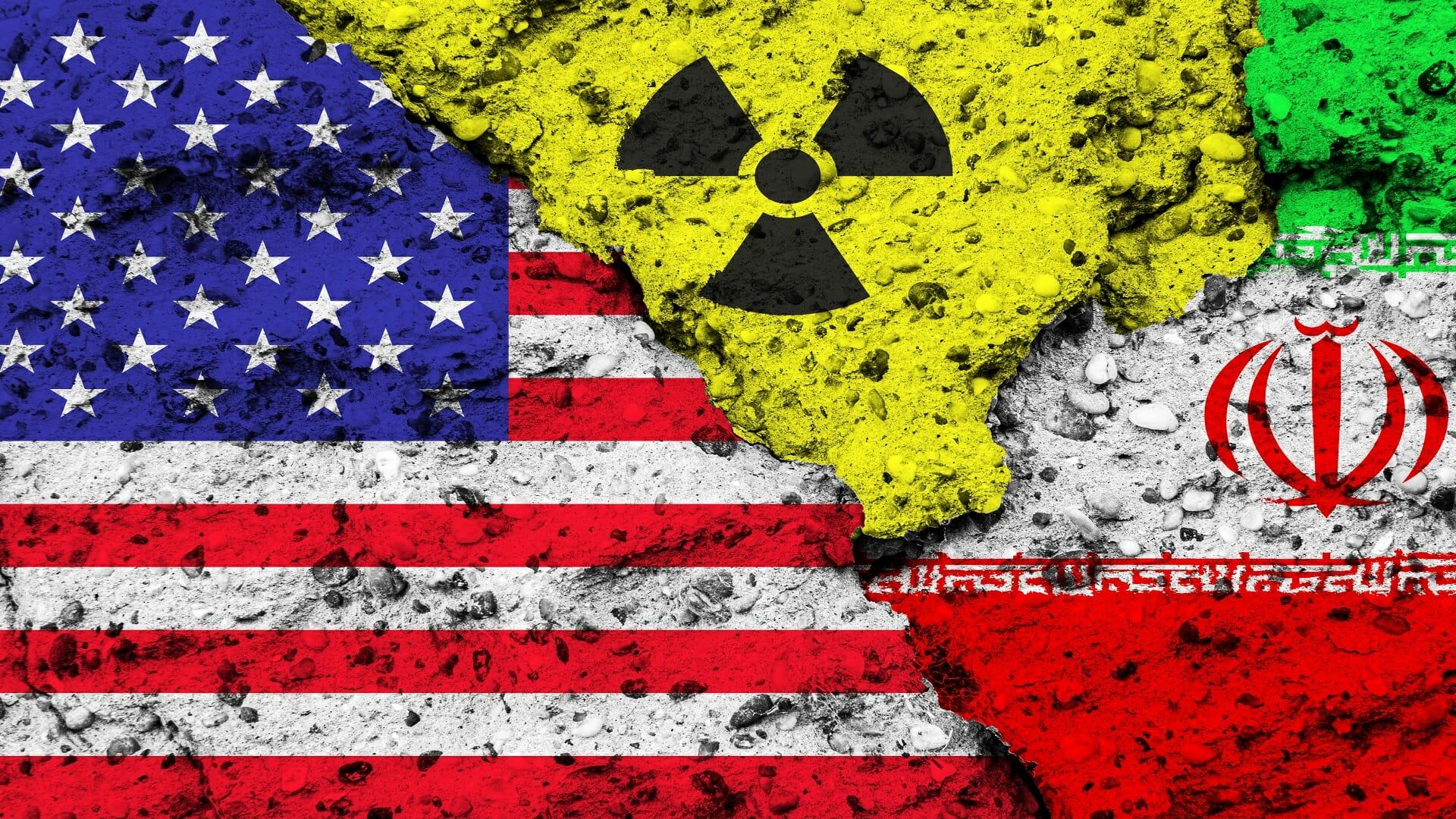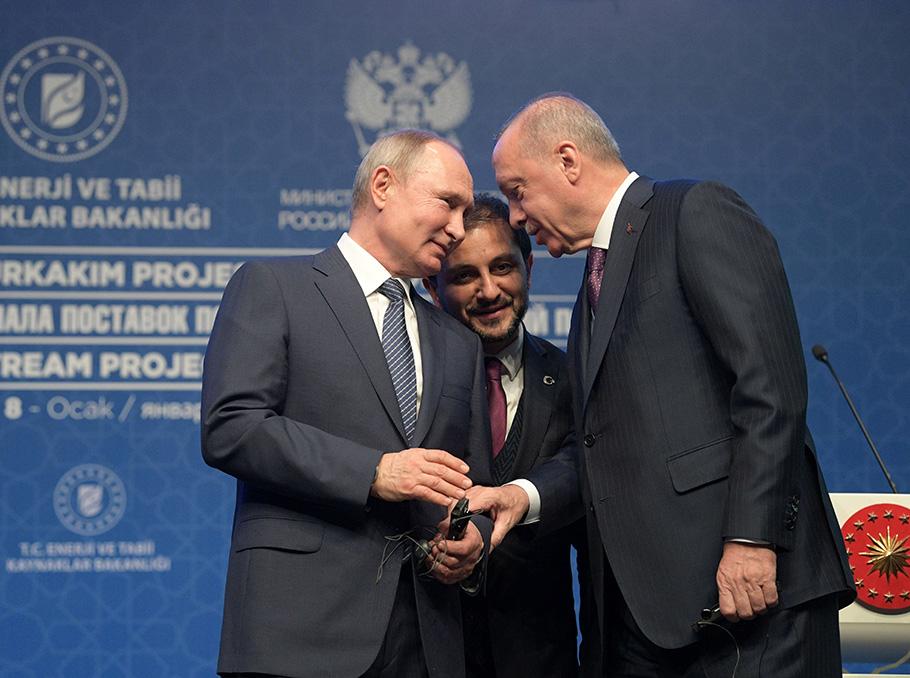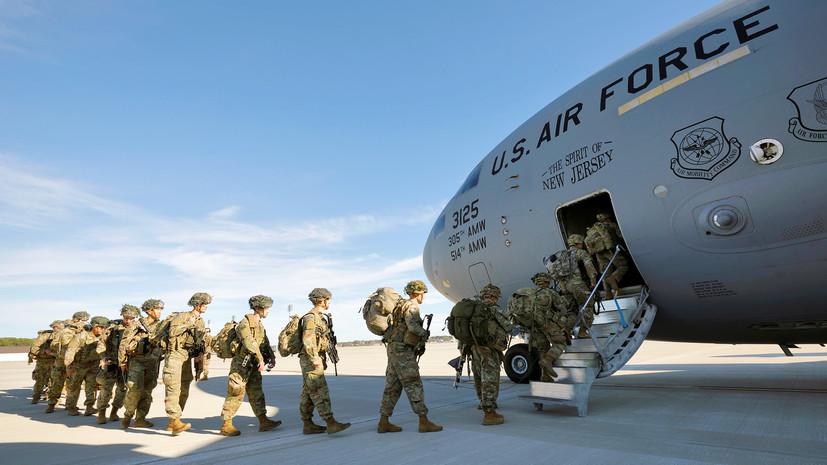Türkiye's strength, US weakness and Iran's expansion
Shereshevsky on Jeffrey's predictions
ANALYTICS 09 February 2024 - 15:52
| Mikhail Shereshevskiy Caliber.Az |
Shortly after the previous elections in the US and the coming to power of Joe Biden's administration, one of the country's leading experts in the field of Middle East policy James Jeffrey published several articles. In them, he accurately predicted the subsequent developments. Today is the time to take stock of the Biden administration and its Middle East policy, so these predictions come in handy.
Jeffrey is a scholar and a diplomat at the same time. He has held a number of posts in several US administrations, was ambassador to Baghdad and Ankara, and in 2018 the Donald Trump administration appointed him as US special representative for engagement with Syria.
According to former presidential national security adviser John Bolton, it was Jeffrey who, in the last year of Trump's administration, determined Washington's overall course in the region and advocated outsourcing the Middle East to Türkiye. Whether this is true or not, Jeffrey made several predictions that have brilliantly come true.
The escalation between the US and Iran
First, Jeffrey pointed out that the Biden administration's attempt to revisit the nuclear deal with Iran and to peacefully cooperate and engage with the country would go nowhere. The deal called for the lifting of economic sanctions on Iran in exchange for its refusal to enrich uranium and build nuclear weapons.
He was right. All attempts by the Biden administration to revisit the nuclear deal have failed. The parties failed to reach an agreement in four years. Iran has accumulated enough enriched uranium to build several nuclear devices and is actively developing its missile program, i.e., it has moved closer to a nuclear weapon.

Perhaps this is because for Tehran, confronting the US-Israeli alliance is a key ideological and geopolitical objective. Iran is increasing its influence by expanding its network of allies, which now encompasses and largely subjugates Yemen, Iraq, Syria and Lebanon, as well as the Gaza Strip (Hamas).
Iranian expansion is designed to unite the Middle East against Israel and America. Interestingly, according to the Iranian leadership itself, at least its most influential conservative wing, the confrontation with America is primarily driven not by ideology but by geopolitics. Iran is too big and too strong. Its role in the Middle East is too great for the United States, which itself claims to dominate the region, to let it get away with this.
Tehran's uncertainty about the US position has also become an important aspect. The Americans first made a nuclear deal with Iran in 2015, under President Barack Obama, then in 2018 Trump pulled the US out of the deal, although the Iranians generally complied with its terms. Democrat Biden decided to revisit it, but Republicans warned they would cancel it if they returned to power in the US. The Iranians then made it a condition that the US Congress pass a legislative resolution on the deal so that it could not be cancelled by a simple executive order. But Biden refused to take such a step. Perhaps this idea was practically unrealizable in conditions when the administration did not have the necessary level of support in Congress, but this is its difficulties. If the US political system is broken - and it looks like it is - other countries are not in a position to fix it; they simply proceed from the facts and draw the appropriate conclusions.
After the events of October 7, 2023, a new Middle East war began. In it, Iranian proxies and the Iran behind them are confronting US and Israeli forces on five fronts (in the Red Sea, the Gaza Strip, Lebanon, Iraq, and Syria). The Houthis in Yemen and pro-Iranian forces in Lebanon, Iraq and Syria are shelling Israel and US targets, and the US and Israel are bombing their positions and bases. And all this against the backdrop of fighting in the Gaza Strip between the Israeli army and Hamas.
Thus, history has confirmed Jeffrey's prediction of the impossibility of US-Iran cooperation 100 per cent.
US rapprochement with Türkiye
Jeffrey's second prediction was related to Türkiye. He criticized the dismissive attitude of some US politicians toward this country, pointing out that Türkiye is Washington's most important ally, whose task is to contain Iran and Russia.
Although Ankara has been expanding trade with Tehran (trade turnover between the countries reaches $5 billion and the two sides would like to increase it to $30 billion) and has no current intention of escalating the situation, the two major Middle Eastern powers are traditional rivals. They have been for centuries simply by virtue of geography, position and power. Two bears are always cramped in the same den. In addition, the countries oppose each other in Syria, where Iran (along with Russia) supports Assad's Alawite-Shiite regime and Türkiye supports anti-Assad forces.
But Türkiye's importance to the US is much greater. It is a huge country that occupies an extremely important position between Europe and Asia, and controls strategic straits, providing a sea route from the Black Sea to the Mediterranean. Türkiye has the second-largest army in NATO and hosts a number of the alliance's most important facilities, which means it covers the southern and eastern flanks of the North Atlantic bloc.
Relations between Türkiye and Russia are a special topic. In recent years, President Tayyip Recep Erdogan has chosen a relatively independent foreign policy course from Washington. Türkiye has started to get closer to Moscow. Within the framework of the Astana process and the Sochi talks, it shared Syria with Russia and Iran. Ankara bought S-400 air defence systems from Moscow, refused to join anti-Russian sanctions and became one of Moscow's three most important economic partners along with China and India. Trade turnover with Russia has more than doubled over the past two years, reaching $70 billion. Türkiye has become a major buyer of Russian energy resources, acquiring them at low prices, which is a subsidy for its economy.
At the same time, Türkiye has become a safe harbour for Russian capital in their attempt to evade Western sanctions. Russians have opened hundreds of companies in the country. The most striking example was perhaps the unique deal under which Russia is building the $25 billion Akkuyu nuclear power plant in Türkiye and lending for the construction itself.

The conflict with Greece, Egypt, Cyprus and Israel over gas fields in the eastern Mediterranean played an equally important role in cooling relations with Washington. In 2019, a Mediterranean gas forum was established with the aim of common production and transportation of gas for export to the European Union. Türkiye was not invited there.
In response, Ankara got into a serious altercation with Greece (a NATO country) over disputed water areas where gas fields are located. The matter reached the point of clashes between Turkish and Greek ships, though without the use of weapons. The US and Europe sided with Athens. Under such conditions, Türkiye had additional incentives to get closer to Moscow, which opposes NATO.
All this caused anger of the Americans and fears in the EU countries. The US imposed sanctions on Ankara for the purchase of the S-400, excluding Türkiye from the program to develop and acquire the latest US stealth combat aircraft, the F-35. A number of European states and Canada have severed ties with the Turkish military-industrial complex, which, although rapidly gaining strength (it increased exports by 20 per cent last year), is still dependent on foreign parts and technology.
When Türkiye approached Washington with a request to buy 120 combat aircraft of the previous generation, the F-16 block 70\72 (although this is the newest modification of this aircraft, which has a huge combat power), the US long delayed with the consent, making this issue dependent on Türkiye's agreement with Sweden's membership in NATO.
Syria has become another contentious issue. Washington supports Kurdish formations in that country and supplies them with weapons. An alliance of Kurdish militias and some Arab militias created with US support, the SDF (Syrian Democratic Forces) opposes a number of other forces - Assad and his Iranian friends, remnants of ISIS, pro-Turkish Sunni forces. Türkiye believes that the Kurds are led by members of the PKK (Kurdistan Workers' Party), which is officially recognized in the country as a terrorist organization. The territories controlled by Kurdish militias in Syria are home to US military bases and as long as this is the case, Turkish forces cannot conduct military operations there. This issue has led to a fierce debate between Ankara and Washington and remains one of the main contradictions between the countries.
Still, relations between Ankara and Washington have shifted. Tensions between Greece and Türkiye have eased, especially after Erdogan's visit to Greece. The $23 billion F-16 deal seems to have passed; it will dramatically increase Ankara's military power. Türkiye has agreed to Sweden's membership in NATO. Acting US Deputy Secretary of State Victoria Nuland, during a visit to Türkiye, urged Erdogan to give up Russia's S-400 air defence systems in exchange for a return to the F-35 fifth-generation fighter program. Canada and European countries have lifted sanctions on Türkiye. There have also been reports from American diplomats about the possible future withdrawal of US troops from Syria.
Jeffrey believed that the US should get even closer to Türkiye and that such a policy had no alternatives. So far, reality has confirmed his prediction. In addition to the importance Türkiye has for NATO and its confrontation with Iran, there is another, perhaps equally important reason: Türkiye is Russia's natural geopolitical adversary.
For Ankara, strengthening Russian influence in the Black Sea is unacceptable, and it will do everything to prevent the restoration of the USSR in any form and Russia's transformation into a global power. Therefore, after the outbreak of a large-scale conflict in Ukraine in February 2022, Türkiye closed, citing the Montreux Convention, the Black Sea to additional Russian warships, and is supplying Ukraine with the latest weapons, from drones to precision missile systems.
In addition to the Black Sea region, Türkiye opposes Russia in Libya (where the parties support warring factions), Syria (discussed above), in the South Caucasus, where after the victory of Türkiye's strategic ally Azerbaijan over Armenia, Türkiye's influence became comparable to Russia's, as well as in Central Asia, where the Organization of Turkic States is strengthening (Moscow considers this region a zone of its interests, as well as the South Caucasus).
In addition to the military-political factor, there is also an economic one. Türkiye is a large industrial export-oriented economy whose GDP has passed $1.1 trillion. It exports most of its goods to the G7 countries, and its trade turnover with the European Union reaches $200 billion. Turkish industry needs Western markets, capital and, especially, technology.
Meanwhile, the new US course is linked to the limitations of globalization. From now on, Washington will encourage the creation of production chains and cooperation in the field of technology only with friendly countries (this course is directed against the opponents of the US, primarily China and Russia).
In addition, the US recently decided to strengthen sanctions against companies that cooperate with Moscow. This may affect Türkiye and has already caused concern among local businesses.
Given the current circumstances, the likelihood of rapprochement between Türkiye and the US becomes higher. The stronger Ankara is, the more it will seek to expand its influence. If given the opportunity, Türkiye's growing economic, scientific, technological and military power will inevitably take on a foreign policy dimension and be projected outward. The stronger a country is, the greater its ambitions. If Turkish interests are integrated into the Western system of military and economic alliances, its expansion will be directed to those regions where it will face Russian and Iranian influence.
Of course, Ankara will not sever its ties - trade and political - with Moscow and Tehran in the foreseeable future. It will continue to manoeuvre, setting conditions for both the West and its opponents. This is a convenient and traditional policy: you can always tell your partner if you are not satisfied with something: "My friend, we can make a favourable deal not with you, but with your opponent, remember that."

In addition, the US has shown weakness and insecurity in Ukraine and the Middle East, proving incapable of a tough confrontation with Russia and with Iran. It avoided supplying Kyiv with many types of modern weapons to avoid angering Moscow and then stopped helping it altogether, citing an internal crisis.
As for Iran, Washington, after pro-Iranian proxies killed several American soldiers, abandoned the idea of striking Iranian territory. Given the growing weakness of the US, Ankara will not go for a break with Tehran and Moscow in the foreseeable future. America has become too weak and unreliable to be fully relied upon. In fact, it is better not to put eggs in one basket.
Still, a pro-American and pro-Western shift in Turkish politics is possible. It is caused by Türkiye's geopolitical confrontation with Russia and Iran, the contradictions between Moscow and Ankara in the Black Sea region, Ankara's dependence on Western markets and technologies, and the country's membership in NATO. In the strategic perspective, this could have an impact on Türkiye's politics and its relations with its neighbours. But this will happen only if Washington, in turn, consistently moves closer to Ankara.
Caliber.Az
|
1
|
High time to declare US ambassador persona non grata Mr. Libby, take your suitcase and leave for Washington
05 May 2024 - 12:06
|
|
2
|
West destabilising situation in Georgia Security, impunity for (foreign) agents
05 May 2024 - 17:28
|
|
3
|
Double standards and Michel's confession Europe's hypocrisy
05 May 2024 - 11:18
|
|
4
|
Armenian priests, peddling false narratives Unmasking revanchist rhetoric
05 May 2024 - 14:57
|
|
5
|
What to expect from China’s stance on Palestine? A long track of mediation
04 May 2024 - 10:28
|
Israel decides to continue Rafah ops, striking north and south of Gaza Strip
Tensions soar again07 May 2024 - 09:59
Russian official calls out Macron's hypocrisy regarding France's stance on Russia
07 May 2024 - 09:47
Azerbaijan, Iraq explore prospects for development of relations
07 May 2024 - 09:35
Russia, Azerbaijan discuss COP29 preparations
07 May 2024 - 09:23
Turkish fighter jet KAAN successfully conducts 2nd test flight
PHOTO/VIDEO07 May 2024 - 09:11
Sweden goes back to drawing board for next-gen warplane
07 May 2024 - 09:07
“Golden week” fireworks flop shows Hong Kong’s tourism plans lack sparkle
07 May 2024 - 07:03
US AC-130J Ghostrider destroys Chinese "Fishing Boat" in rare military drills
targeting notorious vessels07 May 2024 - 05:04
EU finally ready to bring down Russia’s gas empire … sort of
07 May 2024 - 03:05
Theoretical potential of blue energy in US - enormous
largest project in history07 May 2024 - 01:03
Shell sells millions of “phantom” carbon credits
06 May 2024 - 23:01
Hungary, Armenia agree to open embassies
06 May 2024 - 21:18
Azerbaijan’s Shusha, Lachin to co-host Kharibulbul Music Festival
06 May 2024 - 21:10
Azerbaijan, Türkiye to expand cooperation in military education
PHOTO/VIDEO06 May 2024 - 20:55
Armenian PM to skip out Russian leader's inauguration
06 May 2024 - 20:46
Azerbaijan, Uzbekistan to collaborate in health insurance sector
06 May 2024 - 20:36
Turkish military neutralises seven PKK/YPG terrorists in northern Syria
06 May 2024 - 20:32
Kremlin says Russia investigating alleged French troops deployment in Ukraine
06 May 2024 - 20:14
Australia denounces China over "unsafe" aerial confrontation
06 May 2024 - 20:14
Poland has secret weapon to shift Donald Trump against Russian leader
06 May 2024 - 19:59
The Armenian Church's detrimental role in resisting peace initiatives
06 May 2024 - 19:55
Slovak PM arrives in Azerbaijan for official visit
06 May 2024 - 19:52
US ambassador visits school in Azerbaijan’s Fuzuli
06 May 2024 - 19:50
IAEA chief visits Iran for key nuclear talks
06 May 2024 - 19:43
Belgium starts discussions about possible EU trade sanctions against Israel
06 May 2024 - 19:25
Azerbaijani conference participants discuss modern international legal tools
06 May 2024 - 19:06
Iran to begin construction of new nuclear reactor
06 May 2024 - 18:49
40 pillars installed along Azerbaijan-Armenia border as geodetic measurements progress
06 May 2024 - 18:40
European Commission hopes China to influence Russia
06 May 2024 - 18:33
Armenian president to leave for US
06 May 2024 - 18:25
Egypt preventing escalation of situation between Israel, Hamas
06 May 2024 - 18:14
Slovak PM embarks on visit to Azerbaijan
06 May 2024 - 17:55
US ambassador hails Azerbaijan's efforts in rebuilding Fuzuli
06 May 2024 - 17:38
Poland not to send troops to Ukraine
06 May 2024 - 17:20
Germany recalls its ambassador from Russia
06 May 2024 - 17:02
Defence Turk: Azerbaijan to buy DITA wheeled self-propelled howitzers
PHOTO06 May 2024 - 17:02
Walking a tightrope between pressure and objectivity
Russia's diplomatic tactics with Armenia06 May 2024 - 16:45
Azerbaijani State Border Service chief meets King Charles III at Royal Windsor Horse Show
PHOTO/VIDEO06 May 2024 - 16:31
Human remains discovered in Gubadli
06 May 2024 - 16:25
Azerbaijan showcases its tourism opportunities at ATM Dubai 2024
PHOTO06 May 2024 - 16:15
